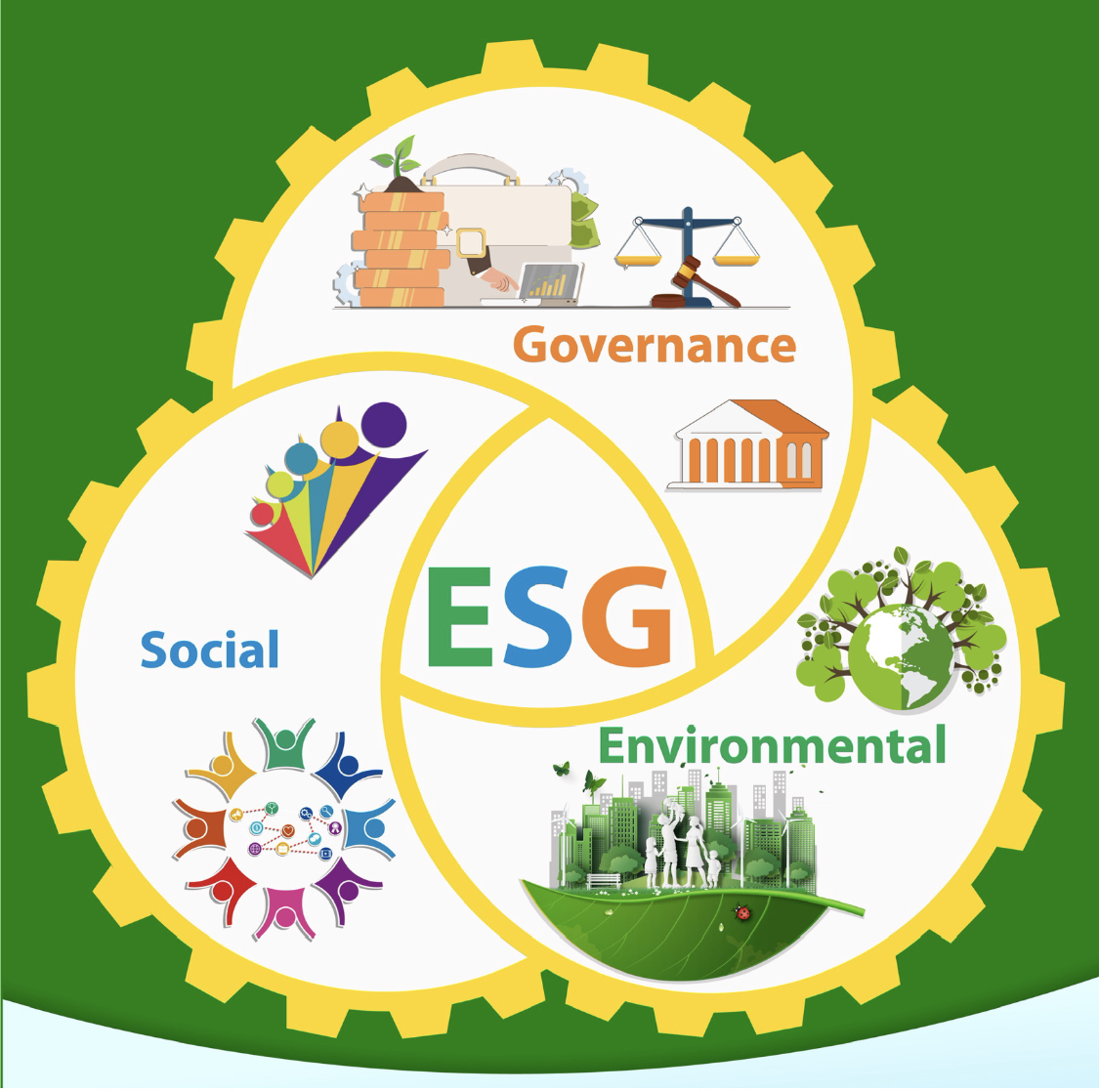
Knowledge Base
Most of us agree that businesses should apply the basic concepts of ESG to reduce environmental stress on the earth and to encourage like-minded individuals to invest in those companies. Here is a basic description of ESG principles, and an observation on the backlash that has arisen in opposition to them.
ESG stands for: Environmental, Social, and Governance. These terms go hand in hand with the concept of "corporate sustainability" and imply methods of business management and production systems that offer beneficial attributes to all the stakeholders in a company's sphere of infulence. Founders, shareholders, employees, vendors, clients, and consumers can all be components of ESG-concious companies, contributing value to society while simultaneously realizing profits and expansion of their enterprises. Viewed this way, implementatiomn of ESG principles are an inclusive approach to conscientious, healthy and sustainable businesses. ESG is much more complex and significant than merely stating that a company is in that vague category known as "green",
If we add the terms "responsible and responsibility" to the ESG picture we get a fuller view of this approach. A environmentally responsible company works to upgrade its sustainability by deploying common practices for reducing carbon footprints and managing damaging wastefulness. A socially responsible company supports guidelines and practices that benefit employees and customers in positive and meaningful ways. "Governance" refers to the economic responsibility that a company has in regards to ethical compliance, honest accounting practices, and transparency in all of their areas of business.
The terms: Environmental, Social, and Governance, (the "three pillars" of corporate sustainability) are also understood to cover the areas of "planet, people, and purpose", and sometimes "profits" are included in this list. The environmental impact of a company's production facilities and supply chain systems, the psychological and physical impact on that company's employees, and the economic impact of a company's presence in its area of operation are really what this is all about. Generally, it is easier to assess environmental impact in terms of carbon footprint, consumption of clean water, packaging production and its associated waste, and obvious environmental damage than it is to assess the social impact a company exerts. We are often confronted with the human cost of manufacturing processes in terms of pay scale and working conditions which underly the products we enjoy. Was the t-shirt you are wearing made by exploited workers, or children, in a factory that is rife with unhealthy conditions and violates their basic human rights? If so, in my opinion, that company does not deserve your patronage. Does the company that made your eyeglasses give away a pair to needy kids for every pair you buy? If so, then that company is on the right track in my opinion.
Governance is the most difficult of the three pillars to assess. Ideally the goals of the CEO and the board of directors align with the goals of the shareholders and the larger corporate community. A profitable company that actualizes sustainable methods will produce profits, (not a bad thing), enabling that company to do even more good things going forward. However, one must be aware that all is not what it seems at times. Does the company contribute to questionable political movements or candidates? Will an audit reveal illegal financial maneuverings or practices? What kind of risk tolerance does the company show in its investments, and are those investments environmentally sound as well? These are the hardest aspects of analyzing a business for sustainablity and ESG compliance. Everyone has different ideas as to what is acceptable.
There are many third party ESG rating companies. All of them have different approches to their proprietary rating systems, but across the board they are generally accurate. These rating systems are aimed at providing potential or current investors with information that gives a clearer view of the ESG practices a given company does or does not support. A few of the better known rating systems are provided by: Thomson Reuters, S&P Global, Moody's Investor Research, MSCI ESG Research, Dow Jones Sustinability Index, and Bloomberg ESG Data Services. If we consider that ESG related assets under management will be in the neighborhood of $33 trillion (yes, Trillion dollars) by 2026, and that there are about $17 trillion of sustainable investment capital on the table, it is essential for investors and companies to make ESG decisions carefully. ESG scores take into consideration a variety of criteria such as carbon footprint, energy sources, toxic waste management, worker safety, supply chain systems, business ethics, and accounting practices to name just a few. The different reporting entities all use different criteria and scale indicators, but for these purposes we can assign the categories listed below as general levels.
The accepted score or scale for ESG compliance is 0-100. This is achieved by assigning a 0-10 score for multiple areas of reporting, ten areas being the most common. Business areas with higher impact have the higher weightings. These are also measured in time frames of 2 to 5 year cycles. Any company with a score of 50 or below is considered to be on the "poor" end of the scale, and companies with a score of 70 or higher are considered to be "excellent". As a quick reference the terms "leader", "average", and "lagging", can also be applied. Similar to the bond market these categories are further identified by the traditional "AAA", "BBB", and "CCC" labels. An "excellent" company can be rated "A" or "AA" but still be in the excellent category.
In the United States there are around 140 companies that offer publically accessible ESG ratings. We can analyze a company's comittment to ESG as part of our decision as to whether or not to support that company or to invest in it, or to submit our resume to it. A sustainable business model that utilizes ESG strategies is more likely to have access to ongoing capital acquisition, enabling that company to expand and develop their sales and profits. In that same manner an ESG concious company is more likely to attract younger talent given that around 70% of all millenials believe ESG is essential to today's buisness models. The CEO of the Mars coporations recently stated: "Quality companies are invested in this...employees won't stay with us if we don't care about ESG...We don't believe purpose and profit are enemies..." Unfortunately, there is a bizarre backlash to ESG-minded companies that has recently become part of the conservative political viewpoint. For my part, I delegated to Cafe specifically because of the donations it makes to benvolent environmental and charitable causes, the transparency of its self reporting, the availability of its team to delegators, and its committment to sustainable energy sources for Cafe's server infrastructure. To my way of thinking Cafe has a very high ESG rating which sets it above many other Cardano stake pools. For a deeper look into Cafe's ESG score please click this link, Greener Pastures, which takes you to one of my earlier blog posts addressing this subject.
When all is said and done businesses exist to make money, its really that simple. Looking ahead it is obvious that companies need to embrace ESG principles for many correct reasons, and a healthy bottom line is really the most compelling reason of all. Environmentally concious comsumers all over the world know what matters most, and they are willing to support companies and businesses that exhibit a similar awareness. Like it or not we only have one Earth to live on, and the only way to go forward is to apply the concepts of sustainability to every aspect of businesses regardless of what business they are in.

|
written by: Eric Hill published at: Apr 9, 2023
|

Knowledge Base
Dec 3, 2023, by Eric Hill

Knowledge Base
Sep 7, 2023, by Eric Hill

Knowledge Base
Mar 22, 2023, by Eric Hill

Knowledge Base
Oct 22, 2022, by Eric Hill